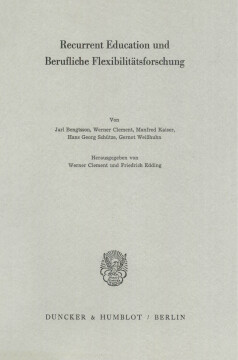Recurrent Education und Berufliche Flexibilitätsforschung

BOOK
Cite BOOK
Style
Format
Recurrent Education und Berufliche Flexibilitätsforschung
Editors: Clement, Werner | Edding, Friedrich
Schriften des Vereins für Socialpolitik, Vol. 103
(1979)
